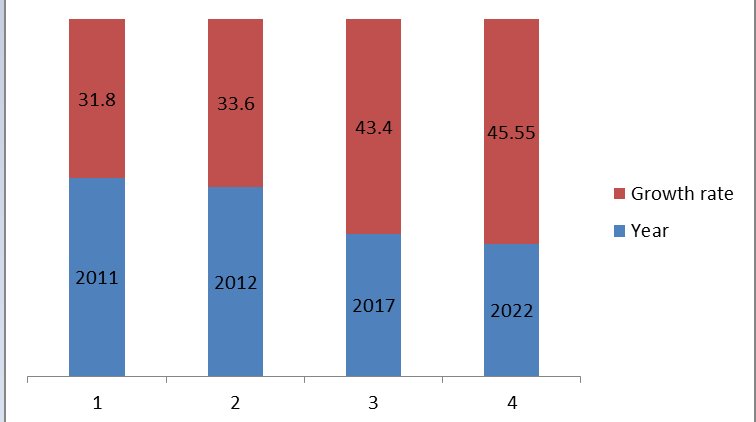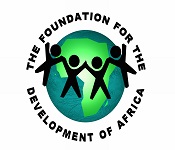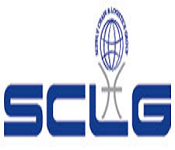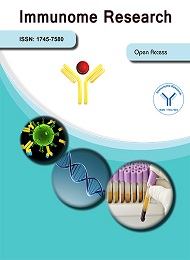Theme: “Emphasizing the Global Approaches in Viral Infection and Immune Responseâ€
Immune Response 2020
- About the Conference
- Session/Tracks
- Market Analysis
- Past Conference Report
- International Immunology conference :News and updates
Me Conference takes immense pleasure to welcome all the participants around the globe to our “2nd International Conference on Viral Infection and Immune Response” scheduled during June 25-26, 2020 in Abu Dhabi, UAE with that highlights on many research related to Viral Infection and Immune Response.
Immune Response 2020 brings together Immunologist, Virologists, and Researchers to discuss about the challenges and various progresses in the field of Immunology and Virology. The aim of the conference is to provide an international platform to Immunologists, Virologists, research scholars, Virology and Immunology professors and academics for discussion and implementation of the recent research in Immunology and Virology for attaining sustainable development in local and global contexts.
On behalf of Immune Response 2020 we invite you to join us for the academic discussion and visit the beautiful city of Abu Dhabi, UAE.
Why attend?
Immune Response 2020 aims to provide a platform for the Research Scholars around the globe focused on learning about the global approaches made in Immunology & Virology; this is the best opportunity to reach the best contributors from Immunology and Virology community. Globalize your research work, get to meet with existing and potential researchers, introduce new improvements in Immunology & Virology and get the acknowledgement in this occasion. World renowned speakers, current researchers, developments, challenges and the latest update in Viral Infection and Immunology are the highlights of this conference.
Who Attends?
- Academic Professionals
- Research scholars
- Immunologists/Virologists
- Microbiologists
- Biotechnologists
- Immunology/Virology Societies and Members
- Medical School Students
- Nursing Schools/Colleges Students
- Pathologists
- Immunology Professionals
- Epidemiology Specialists
- Pharmaceutical Companies
- Infectious Diseases Specialists
- Medical Device Manufacturing Companies
- Business Entrepreneurs
Track 01: Immunology & Viral Infection
Immunology is the branch of science that deals with the study of immune system. It protects us from various infections through various defense lines. It includes the understanding of how body components respond and interact. It includes the physiologic process that permits the body to identify materials as foreign or abnormal and to deactivate or eliminate those foreign materials. The immune system is a difficult system of structures and processes that has changed to protect us from disease. A viral infection is the spread of virus inside a body. Viruses cannot reproduce without a host body. Viruses infect the body by introducing there genetic material (DNA) inside the host body. The genetic material after insertion hijacks the cells immunity and divides into more copies. Viruses can affect many body parts which includes the reproductive, respiratory and gastrointestinal system
Track 02: Viral Genomics
Genomics is a branch of biotechnology finds out about applying the systems for acquired qualities and sub-atomic science to the hereditary mapping and DNA sequencing of sets of qualities or the entire genomes of picked living things, with sorting out the outcomes in databases. Genomics is an area inside common properties (i.e., intrinsic attributes) that burdens the sequencing and examination of an animal's genome. The fields of sub-atomic science (subatomic science) and hereditary qualities are for the most part worried over examination of part and point of confinement of the single attributes a basic subject in the present biomedical research. By capability, genomics prohibits single quality research unless the fact is to appreciate a singular quality's things in the setting of the entire genome.
Track 03: Immune Response to Viral Infection
At the point when our bodies go under assault from a viral contamination they dispatch an advanced safeguard known as 'immune response'. Our insusceptible framework is intended to perceive the cells that make up our bodies and repulse any pathogens. They do this by utilizing an immense armed force of safeguard cells which comprise various kinds of white platelets. We make around a billion of them consistently in our bone marrow. White platelets called macrophages devastate germs when they identify them. Notwithstanding, if a viral contamination starts to grab hold we battle back utilizing an all the more intense barrier of white cells called T and B lymphocytes. Antibodies are an extraordinary protein made by B cells. They tie to an infection to prevent it from reproducing, and furthermore tag infections with the goal that other platelets know to decimate them. White blood cells have diverse parts to play. Some go about as watch pooches that raise the alert when they distinguish attacking infections; others execute infection tainted cells straightforwardly, or help B cells to create antibodies. Once the infection has been cleared, few these B and White blood cells persevere and hold a precise memory of the wrecked virus. This implies our insusceptible frameworks are prepared to keep another disease from a similar infection, without assaulting the body's own particular cells unintentionally. This is known as 'acquired immunity'.
Track 04: Gene Therapy
Gene treatment is associate degree experimental technique that uses genes to treat or forestall illness. In the future, this method could permit doctors to treat a disorder by inserting a sequence into a patient's cells rather than exploitation medicine or surgery. Somatic sequence therapy: transfer of a vicinity of deoxyribonucleic acid to any cell of the body that does not turn out spermatozoon or eggs. Germ line sequence therapy: transfer of a vicinity of deoxyribonucleic acid to cells that turn out eggs or spermatozoon.
Track 05: Infection and Nutritional Immunology
The invasion of the foreign particle or micro-organisms into the body of a person is termed as Infection. The infection leads to many infectious diseases or communicable diseases. The infections are caused by foreign particles leading to several immune reactions like allergy, inflammation, itching etc. The immunity of an individual should be stronger to fight all infectious diseases. Viral Infections has a great effect on humankind. It affects the human economy by prompting losses in crops and livestock. Nutritional Immunology is the study of relationship between nutrition, immunity and infections. Many unbelievable advances have been made to understand how nutrient or lack of them impacts the micro biota, immune system and impact on the fighting to viral infection.
Track 06: Microbiology and Microbial Immunology
Microbiology is the branch of science that deals with the study of single celled or multi celled organisms. Immunology and Microbiology are together related as many microorganisms cause many infectious diseases that can harm to the immune system of an organism. The diseases caused by virus and other microorganisms that can harm the immune system are: Dengue Fever, Tuberculosis, Malaria.
Track 07: NeuroImmunology and Pediatric Immunology
NeuroImmunology is the combination of both neuroscience and immunology. Interaction involves both the immune system and nervous system which includes the physiological functioning of both the systems in health and diseases. Pediatric immunology and allergy deals with the diseases that affects the immune system of the children. The people who treat the children are called as pediatric immunologists or allergists. The immunological disorders faced by the children are: Multiple Sclerosis, Transverse Myelitis, Neuromyelitis optica.
Track 08: Transplantation Immunology
Transplantation is the process of moving of cells, tissues or organs from one site to another in order to replace the damaged or unhealthy tissues and organs. The immune system positions a significant blockade to successful organ transplantation when the organs or tissues are moved from one individual to another. The absence of an immune response against the body's own tissues is called as tolerance. When an organ transplant is hosted to the body, the immune system identifies it as foreign material and so attempts to attack and destroy it. It is this immune response that hints to transplants being rejected.
Track 09: Cancer Immunology
Cancer Immunology is the division of biology that is concerned with considerate the role of immune system in the development of cancer. The most popular application to this is Cancer immunotherapy that uses the immune system as a treatment of cancer. Immunogenic cancer cell death is the main priority of cancer chemotherapy. Professional has said that apoptotic cell death is poorly immunogenic and necrotic cell death is truly immunogenic.
Track 10: Vaccines
A vaccine is a biological research that provides active acquired immunity to a specific disease. Vaccine sometimes covers a cause that resembles a disease-causing being and is usually made up of weakened or destroyed varieties of the germ, its toxins, or one in all its surface proteins. Vaccines can be prophylactic or therapeutic. Prophylactic vaccines are used to prevent the effects of future infections by a natural pathogen. Therapeutic vaccines are the vaccines those are been investigated.
Track 11: Innovations in Immunology
The innovations or emerging technologies are expanding our understanding on Immune System. There applications on been exploited will need philosophical and practical changes to the way the research are done.
Track 12: Terrifying Viral Infections
Infections are extremely minor germs. They are made of hereditary material within a protein covering. Infections cause commonplace irresistible illnesses, for example, the regular icy, influenza and warts. They additionally cause extreme sicknesses, for example, HIV/Helps, smallpox, and Ebola. They attack living, typical cells and utilize those cells to duplicate and deliver different infections like themselves. This can murder, harm, or change the cells and make you debilitated. Diverse infections assault certain cells in your body, for example, your liver, respiratory framework, or blood.
Track 13: Immunization & Infection Control
Immunization is the process in which a person is made immune or resistant to an infectious disease, usually by the direction of a vaccine. Vaccines stimulate the body's own immune system to defend the person against following infection or disease. Infection control is defined as the troubled with preventing nosocomial or healthcare-associated infection, a practical sub-discipline of epidemiology.
Track 14: Cytokines and Current Research
Cytokine is a substance that is prepared by cells of the immune system. Certain cytokines can increase the immune response and others can suppress it. Cytokines can even be created within the laboratory by deoxyribonucleic acid technology and utilized in the treatment of assorted diseases, together with cancer. Cytokines released from one cell affect the actions of other cells by binding to receptors on their surface. Interleukins are proteins that regulate immune and inflammatory responses.
Track 15: Antiviral Medication and Other Treatments
An agent that implements an infection or that smothers its capacity to repeat and, thus, represses its ability to increase and reproduce. The development of antivirals has lingered a long ways behind that of anti-infection agents. A virus is a simply hereditary material, DNA or RNA, maybe with a couple of catalysts, wrapped in a protein coat. Further, the virus replicates within the host cell they reside, so it is hard to execute the infection without killing the cell. Various infections can likewise stay torpid in the body without imitating, consequently maintaining a strategic distance from drugs that hinder replication.
The antivirals that have been produced are by and large less viable than one might want. Infections can recreate quickly and, much of the time carelessly, offering to ascend to changes that make them impervious to drugs. Also, for quick moving viral contamination like influenza or a cold, a medication must be capable to have any kind of effect before the illness runs its common course.
Immune Response 2020 welcomes all the members around the globe to attend the “2nd International Conference on Viral Infection and Immune Response” which is scheduled during June 25-26, 2020 in Abu Dhabi, UAE. This conference focuses on the theme “Emphasizing the Global Approach in the field of Viral Infection and Immune Response”.
Scope and Importance:
Immunology is a different and rising discipline that can be well-defined as the study of the tissues, cells and molecules elaborate in host defense mechanisms. Immunologists try to comprehend how the immune system grows, how the body protects itself against disease, and what happens when it all goes wrong.
The rising generality of a few diseases and the increase of a few new illnesses are relied upon to authorize the main players in the market for the progression of novel and effective antibodies and medications. This is expected to upgrading the development of the worldwide immunizations showcase in the following couple of years.
As shown by the statistical surveying reading that has been as of late distributed by Transparency Market Research, worldwide revenue for vaccine technologies was approximately $31.8 billion in 2011. This market is likely to increase from $33.6 billion in 2012 to $43.4 billion in 2017 at a compound annual growth rate (CAGR) of 5.3%. An continuing report from the Global Business Intelligence (GBI) statuses that the universal immunology treatment advertise break down is set to grow to an expected $74.2 billion out of 2022. Rendering to the Centers for Disease Control and Prevention (CDC), it is estimated by 2025, 19.3 million malignancy cases are trusted upon to be analyzed each year and thus it needs for the growth in initial documentation of growth. In this way, as on explanation of tumor immunology or immuno-oncology, the advanced occurrence of molecular resistant biomarkers is in the huge variety to spread $45.55 billion 2022 at a CAGR of 11.6% out of 2020.

Related Societies:
USA
- American Society for Virology
- World Society of Virology
- Pan-American Society for Clinical Virology
- American Society for Microbiology
- The American Association of Immunologists, Clinical Immunology Society
- The Association of Medical Laboratory Immunologists
- Society for Mucosal Immunology
- The International Society for Neuro Virology
- International Society for Antiviral Research
Europe:
- European Society for Virology
- European Society for Clinical Virology
- European Federation of Immunologists
- Spanish Society for Virology
- Swiss Society for Microbiology
- International Union of Immunological Societies
- British Society for Immunology
- Canadian Society for Virology
- Danish Microbiological Society
- Finnish Society of Allergology and Clinical Immunology
- Scandinavian Society of Immunology
- Hungarian Society of Immunology
- Italian Society of Allergy
- Asthma and Clinical Immunology
- Swedish Society of Virology
- Swedish Society of Clinical Microbiology, Slovak Immunological Society
Middle-East:
- Hellenic Society of Virology
- Egyptian Society of Virology
- Japanese Society for Virology
- Israel Immunological Society
- Turkish Society of Microbiology
- Turkish Society of Clinical Microbiology
- Infectious Diseases and Clinical Microbiology Speciality Society of Turkey
Asia-Pacific:
- Indian Virological Society
- Australasian Virology Society
- Australian society of clinical immunology and allergy
- Chinese Society for Immunology
- Chinese Society for Microbiology
- Indonesian Society of Allergy and Immunology
- Japanese Society for Virology
- Japanese Society for Immunology
- Malaysian Society of Allergy and Immunology
- Malaysian Society of Microbiology
Related Hospitals:
- Boston Children’s Hospital
- Howard University Hospital
- Seattle Children’s Hospital
- University Hospitals Cleveland
- University of Lowa Hospitals
- Yale-New Haven Hospital
- Henri Mondor Hospital
- Central Manchester University Hospital
- Brigham and Women’s Hospital
- Massachusetts General Hospital
- Children’s Hospital of Philadelphia
Related Universities:
- Amity University
- American University
- Biotechnology University College
- Baylor College of Medicine
- Boston University
- California Institute of Technology
- Cornell University
- Case Western Reserve University
- Drexel University
- Dubai Medical College
- Dubai Pharmacy College
- Dubai Medical College for Girls
- Duke University
- George Washington University
- Harvard College
- Iowa State University
- Loyola University Chicago
- Mayo Clinic Graduate School of Biomedical Sciences
- North Carolina State University
- Penn State University
- Pennsylvania State University-College of Medicine
- Rush University
- Stanford University
- The University of Texas Health Science Centre at Houston
- Tufts University
- Tulane University
- University of California-Davis
- University of California-San Francisco
- University of Chicago
- University of Cincinnati-Main Campus
- University of Colorado Denver/Anschutz Medical Campus
- University of Iowa
- University of Michigan-Ann Arbor
- University of Pennsylvania
Immune Response 2018.
We would like to thanks all the speakers, conference attendees of Immune response 2018 for making the event successful one.
International Conference on Viral Infection and Immune Response was held during November 18-19, 2018 in Dubai, UAE with the theme “Framing the Response to Emerging Viral Infections”. Generous response and active involvement from the Scientists, Doctors, Professors, Pharmaceutical Industries, Healthcare Industries, Researchers and Students from the fields of cardiology and healthcare completed this event as a successful one.
There were various scientific session on which the discussion was held and those are: Viral Immunology, Viral Pathogenesis, Epigenetic Modifications and Viral Infections, Vaccines and Immunotherapy, Viruses and Cancer, Terrifying Viral Infections, Gene Therapy, Innovations in Immunology, Bacterial vs. Viral Infections, Viral Proteomics, Viral Genomics.
Immune response 2018 wants to thank the Organizing Committee Members. We are also grateful to several delegate experts, company representatives and other renowned personalities who maintained the conference by helping active discussion forums at Immune Response 2018.
The highlights of the meeting were the eponymous lectures, delivered by:
- Eva M Carmona (2 Division of Pulmonary and Critical Care Mayo Clinic Rochester MN, USA)
- Eduardo Martins de Sousa (University CEUMA, USA)
- Jong-Yeup Kim ( Konyang University, South Korea)
- Katarzyna Swist-Szulik (Katarzyna Swist-Szulik, UK)
- Olga S. Latinovic (University of Maryland, USA)
We take the privilege to announce the upcoming “2nd International Conference on Viral Infection and Immune Response” which will be held during June 25-26, 2020 in Abu Dhabi, UAE.
No Where for Viruses to Hide
Scientists have identified a possible vaccine by finding out how a specific virus hides from the immune system to prevent often deadly respiratory infections in humans. The human metapneumovirus (HMPV) was used to conduct the research. The virus was identified in 2001 but follow-up research has shown that it has been circulating in humans for at least 50 years and is considered the No. 2 cause of respiratory infections worldwide, which can be particularly dangerous for children and elderly people. In comparison to cotton rats with placebo, rats immunized with the mutant virus and then infected with HMPV both developed an innate.
Conference Highlights
- Immunology and Viral Infection
- Viral Genomics
- Infection and Nutritional Immunology
- Immune Response to Viral Infection
- Microbiology and Microbial Immunology
- NeuroImmunology and Pediatric Immunology
- Transplantation Immunology
- Cancer Immunology
- Vaccines
- Innovations in Immunology
- Terrifying Viral Infections
- Immunization & Infection Control
- Cytokines and Current Research
- Antiviral Medication and Other Treatments
- Gene Therapy
To share your views and research, please click here to register for the Conference.
To Collaborate Scientific Professionals around the World
| Conference Date | June 25-26, 2020 | ||
| Sponsors & Exhibitors |
|
||
| Speaker Opportunity Closed | |||
| Poster Opportunity Closed | Click Here to View | ||
Useful Links
Special Issues
All accepted abstracts will be published in respective Our International Journals.
Abstracts will be provided with Digital Object Identifier by





























